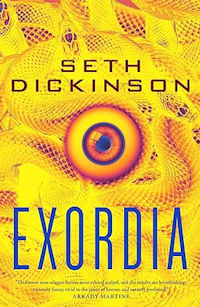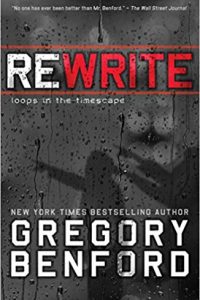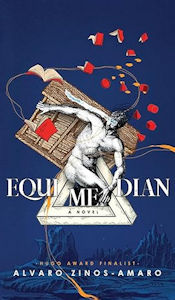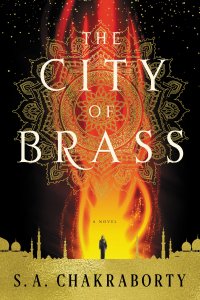Paul Di Filippo Reviews Exordia by Seth Dickinson
 Exordia, Seth Dickinson (Tordotcom 978-1250233011, hardcover, 544pp, $29.99) January 2024
Exordia, Seth Dickinson (Tordotcom 978-1250233011, hardcover, 544pp, $29.99) January 2024
Seth Dickinson’s Baru Cormorant trilogy, known collectively as The Masquerade, was a splashy debut, earning him many accolades and fans. So when his next book, “a gonzo space opera and alien techno-thriller” titled Exordia, was announced in 2018, excitement grew. Six years later, after some public wistful wondering as to when the book would actually appear, Exordia finally hits the shelves, tablets, phones and any other relevant platform owned by eager fans, and I can report that the wait was worth it. The book is a major accomplishment that seems to me to belong in a recent stream of titles where metaphysics and physics converge. We might date the resurgence of this mode to 2002, and the appearance of M. John Harrison’s Light—although there are Golden Age and Silver Age exemplars as well. (Charles Harness, anyone?)
In my summing-up review of the third book in The Masquerade for Locus Online, I made a few observations about Dickinson’s style and approach and themes. If I can unabashedly quote myself, I will. I said that he creates “a morally treacherous world populated with exotic characters whose hearts nonetheless align with ours.” I observed that he was a maximalist, offering a plot “stuffed and overstuffed with vivid set pieces [and] sharp character interactions.” I noted that he “believes in the Laumerian ‘test to destruction’ philosophy of character exfoliation” and that he “can construct a five-page fight scene that never falters, and then turn around and describe [an] emotionally charged parental reunion with some tenderness.” All these traits still shine out of the new book, along with a deft treatment of realpolitik shenanigans, apocalyptic scenarios and the aforementioned quasi-mystical speculative elements.
The book begins on a smallish scale, intimate and with seemingly limited consequences. The reader is prepared for a certain kind of story. Then, after lulling us, Dickinson takes a whiplash ninety-degree turn and lofts the story into the stratosphere, where it remains until a final (literal) launch into orbit.
Our flawed yet grokkable heroine is Anna Sinjari, a young Kurdish ex-pat living in New York City. Hardened, disillusioned, partly broken by a horrific past filled with warfare and personal loss, Anna is just coasting through a series of dead-end jobs and unsatisfying boyfriends. Then, walking through Central Park, she sees an alien no one else can observe. This creature—rather like a big cat but with eight snake-like appendages in place of a singular head (shades of Niven’s Puppeteers)—turns out to be Ssrin, survivor of a spacecraft crash-landing on Earth. Ssrin acknowledges Anna’s special vision, and then further announces that the two of them are bound inextricably together by a universal power known as “serendure.” This means that their fates are united, and that Anna will have to help Ssrin in her quest. (Implantation of a sketchy telepathic communication device in Anna cements the deal.). Ssrin portrays herself as a rebel against a nasty interstellar empire known as the Exordia—and informs Anna that currently an agent of the Exordia, Iruvage, is in the vicinity, tracking Ssrin down.
Given this outline, one flashes on the template novel of this motif: Needle, by Hal Clement. We immediately settle in for a kind of Men in Black cat-and-mouse game among unwitting humans. But just when we get comfortable, Dickinson knocks the props out from under us.
First, Anna gets picked up by USA secret agents who know the rudiments of the alien incursion. The team is headed by two men with a long and tortuous relationship: Clayton Hunt and Erik Wygaunt. They reveal that Ssrin’s ship—dubbed “Blackbird”—is located in Anna’s home village, Tawakul, in Kurdistan, and that numerous forces are converging to wrest the mighty secrets from the alien vessel: Russians, Chinese, Canadians, Americans, Ugandans. Clayton, Erik and Anna must also go there.
And despite such high stakes, the most frightful prospect for Anna is reunion with her estranged mother, Khaje.
So now the book has shifted to something of a technothriller, but Dickinson isn’t done with us yet. To go on with the discussion, I must commit a hopefully allowable spoiler here—it happens relatively early on in the plot, so disclosure might be sanctioned by my readers. Iruvage, growing impatient, crashes human civilization. He sets off many high-altitude nukes, causing a global EMP surge that fries nearly all human tech. Armageddon ensues.
The investigation of the Blackbird (a deadly process reminiscent of Budrys’s Rogue Moon or Silverberg’s The Man in the Maze or, more recently, James Cambias’s The Scarab Mission) turns into a quest to attain the means to defeat the Exordia and save humanity’s bacon, rather than a simple mission for national advantage.
Dickinson introduces a host of other characters in this section, both major and minor, my favorite of whom is the Iranian fighter pilot Davoud Qasemi. They all undergo brutal and explicit battlefield and interpersonal stresses that boil them down and refine them. Some are even killed and resurrected, thanks to Blackbird’s magic. And throughout all the heady action runs a steady pulse of duty versus individuality, morality versus Machiavellianism, and imperialism versus colonialism.
Dickinson ends the book satisfactorily, but leaves our main cast poised for a leap into the realm of the Exordia, where they hope to redeem Earth and its inhabitants.
Dickinson chooses to write a tight and efficient prose, studded with pop-culture references (Star Trek, The Andromeda Strain, Top Gun, 2001: A Space Odyssey, et al). His dialogue is streetwise and sassy, funny and foul-mouthed. His characters are all tangible and breathing, and his aliens uniquely other. And his speculative elements are state-of-the-art.
My only quibble, a small one, is the length of the book. At 500+ pages, it’s just a bit overwhelming. There were several climaxes where I felt we were logically and emotionally finished, but the action went on anyhow. It’s good for an author to love his creation and not want to leave, but sometimes esthetics might dictate some pruning or an earlier departure.
And yet, what kind of illogical complaint is it when one says, “This dessert is among the best things I’ve ever tasted—if only there were less!”? Exordia’s ambition—and Dickinson’s talents— demand and fulfill a very large canvas.
 While you are here, please take a moment to support Locus with a one-time or recurring donation. We rely on reader donations to keep the magazine and site going, and would like to keep the site paywall free, but WE NEED YOUR FINANCIAL SUPPORT to continue quality coverage of the science fiction and fantasy field.
While you are here, please take a moment to support Locus with a one-time or recurring donation. We rely on reader donations to keep the magazine and site going, and would like to keep the site paywall free, but WE NEED YOUR FINANCIAL SUPPORT to continue quality coverage of the science fiction and fantasy field.
©Locus Magazine. Copyrighted material may not be republished without permission of LSFF.







